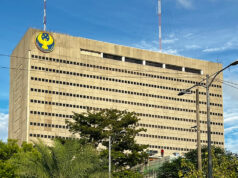Caring capitalism vs loneliness
“All the lonely people in the world, where do they all belong?”
— Paul McCartney of Beatles in “Eleanor Rigby”
We live in a predominantly lonely world and as observed by Bartleby in The Economist, the lockdown due to the COVID-19 has exacerbated this problem that has been spreading for decades in developed nations. As a developing country, the Philippines may not have reached that alarming level but if we don’t watch out, we may succumb to the same malaise.
In an important new book, The Lonely Century, economist Noreena Hertz notes how loneliness is the defining condition of our time, worsened by ever increasing social and economic inequality. If that last part of the statement rings familiar, we ought to be unduly concerned as a country.
Hertz writes that loneliness is damaging to our health. It triggers a lingering and cumulative stress response in the body, hampering our immune systems, increasing our risk of heart disease, stroke and dementia, and making us almost 30% more likely to die prematurely. Worse, lonely people can become more hostile towards others and this has attracted the surge of right wing or extremist politics.
Dehumanizing technology, unimaginative city planning, and austerity are making us unhappy, unhealthy, and hostile. Loneliness can grow even when people are surrounded by others. Big cities can be very isolating. People can feel they only have themselves to rely on where support from employers, the government or our communities are less felt. This is the feeling of being marginalized and neglected by dominant interests in the society.
Hertz points to three main issues affecting modern living. The first is the dominance of a neo-liberal ideology in which the “I” became more important than the “we” and the increasing consumerism precluded the idea of citizenship. This has led to the experience of disconnection by the people. Leaders have emerged with the pretext of listening to those left behind but using the situation to blame a set of others for the cause of all their dissatisfaction and troubles. In the US, for example, the former president made immigrants the target of scorn. In some jurisdictions, leaders point to drugs or other elite groups as the cause of the problems.
A second issue is the condition of work life in the modern world which is isolating. Interaction is impersonal and workers are not there long enough to invest in relationships. Co-workers don’t bother to chat but send e-mails to colleagues just a few steps away. Digital surveillance is widespread. We don’t know our neighbors nor meet them. There are many people around us but we feel alone. And this situation was aggravated by the separation forced by social distancing and lockdowns.
But the third, and I think most difficult issue, is a social media that is in truth anti-social. People glued to their smartphones spend less time interacting socially. Families going out for lunch in a typical restaurant don’t talk to each other consistently but look at their phones continuously. Social validation comes in the form of number of followers or likes.
Then, there is the phenomenon of cyber-bullying and children playing with their gadgets rather than interacting with others. Solitary activity is more pronounced, even before the pandemic, and genuine engagement with others is unattainable.
What should be done. Hertz states her thesis: “If we want to come together in a world that’s pulling apart, we need to reconnect capitalism to the pursuit of the common good and put care, compassion and cooperation at its very heart, with these behaviors extending to people who are different from us.”
In a review by Daniel Towell, he summarizes the Hertz transformative program to rebuild community to have the following elements. One, we need political leadership that makes sustainability and well-being key national goals, not just GNP growth. Two, we need massive investment in a green new deal that brings signified work and stronger workers representation. Three, we need a revival of urban planning that invests in recreating public squares with inclusion and community at their hearts. Four, we need to regulate social media in the public interest and especially reduce the impact on our children. And finally, we need to revive democracy where people are seen and heard as contributors from their experience.
The proposal to create a communal society in a capitalistic system that is caring is a tall order. But half of the solution is realizing that there is a potential problem. The Lonely Century may have been written with the developed nations more in mind. But we cannot be unconcerned. The issues raised by Hertz affect us similarly.
Prior to the pandemic, the Philippines still managed to rank 52 out of 156 countries in the UN World Happiness Report. But we all know we were a big loser as a country in the economic sphere especially compared to our neighbors. We Filipinos pride ourselves with our strong bonds, especially at the family level. We are supposed to be a happy people. But the trend and its debilitating effects upon us may not be far off especially as we are in the midst of a recession. We need to be proactive at this stage.
The views expressed herein are his own and does not necessarily reflect the opinion of his office as well as FINEX.
Benel D. Lagua is former Executive Vice- President and Chief Development Officer at the Development Bank of the Philippines. He is an active FINEX member and a long-time advocate of risk-based lending for SMEs.



